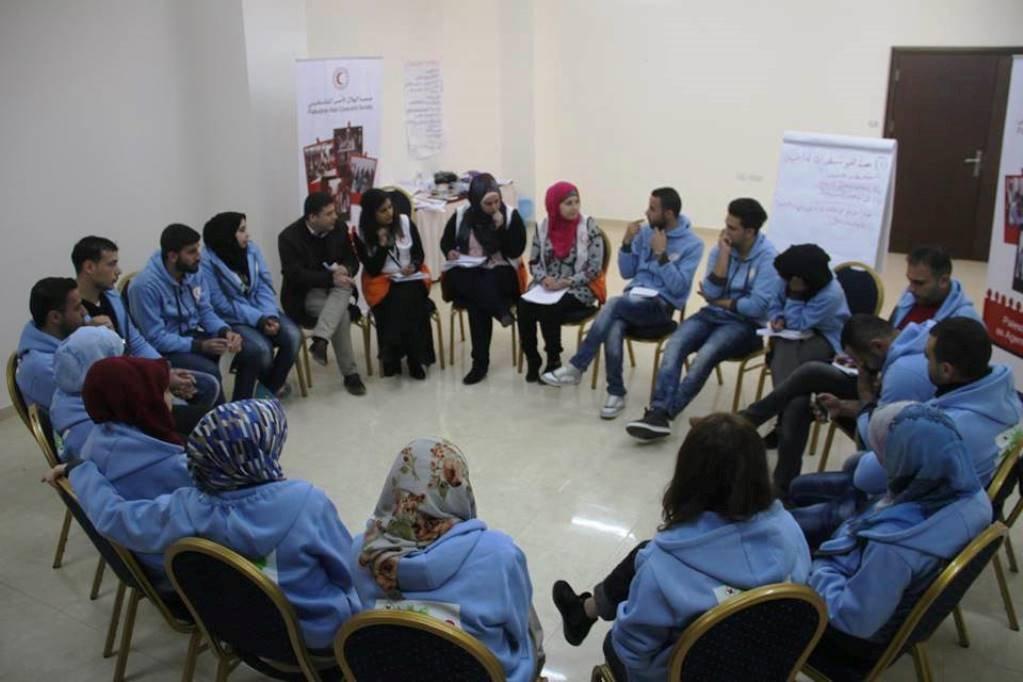
By Raed Al Nims
Despite being relatively new, the PRCS’ Youth as Agents of Behavioral Change (YABC) Program has already attracted 620 young men and women from Palestinian universities, youth groups as well as young PRCS’ volunteers, amidst a high level of interest in the Program.
The 2-year Program aims at building the capacities of young people in order to promote a culture of non-violence and peace.
This IFRC flagship initiative was created in 2008. It seeks to empower individuals to take up an ethical leadership role in their communities by triggering a process of self-transformation amongst participants that results in positive and lasting changes of mindsets, attitudes and behaviors, in harmony with the Seven Principles of the International Movement of the Red Cross and Red Crescent .
According to Ahmad Ahmad, Program Coordinator in the Gaza Strip, “the Program started in February 2016 in the Gaza Strip. So far, it has attracted hundreds of young men and women who received training in the fields of critical thinking, non-judgement, effective communications, negotiations, behavioral change based on rights and responsibilities, community engagement and active listening. 25 workshops were organized with the participation of local universities, youth groups and PRCS’ volunteers. A YABC camp focused on training peer educators with the participation of Ms. Reema Shobra from IFRC”.
Raja’a Ayesh (19) described her participation in the Program as follows: “It was a unique experience for me. I learned the basis of sound thinking, planning and behavioral change. I understood from the very beginning how important the topics discussed and exercises undertaken were. I hope that PRCS will continue implementing this Program and that more young men and women will join it to ensure that it benefits as many youths as possible”.
Mohamad Ghaboun (24) was delighted to take part in one of the Program’s workshops. “As a psychologist, this Program helps me in my field of work. Non-violence and peace themes as well as learning to engage with local communities as agents of behavioral change enable us to better deal with crises and solve community problems based on the principles of unity, volunteerism and humanity. As such, we are better able to assist others in a non-biased and non-discriminatory manner, which is what PRCS is all about”, he said.
End.